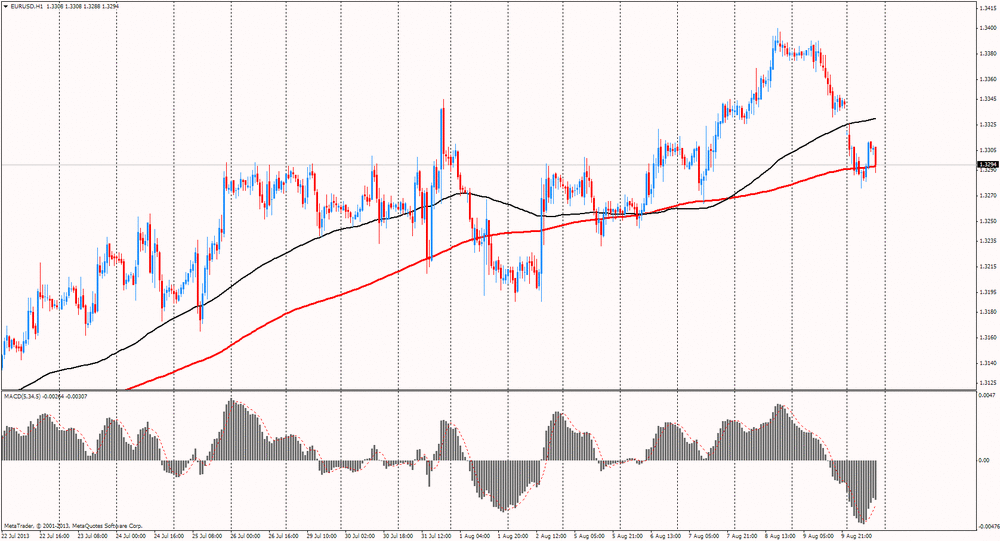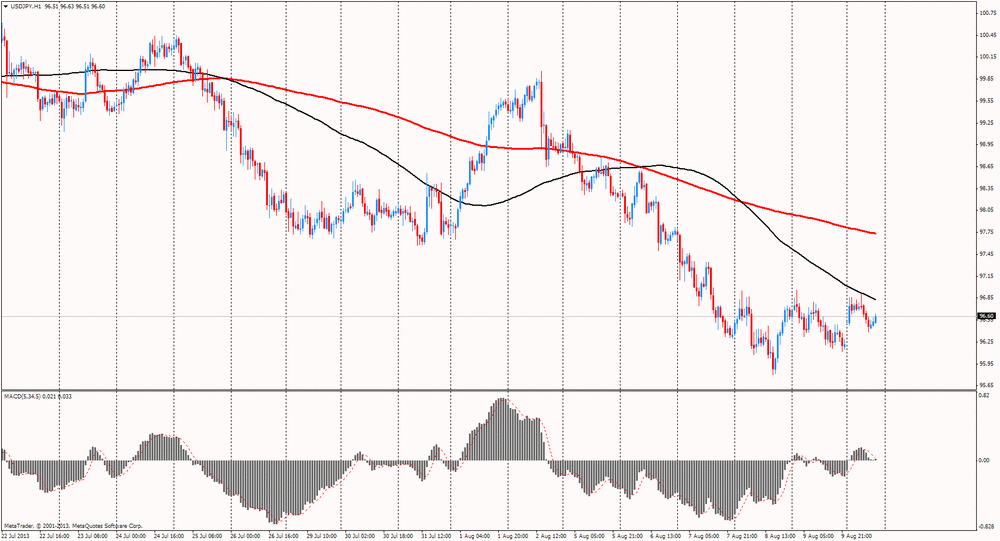- Analytics
- News and Tools
- Market News
- American focus: the euro fell
American focus: the euro fell
Euro fell against the U.S. dollar in anticipation of tomorrow's publication of data on the volume of industrial production and GDP in the eurozone.
According to the median forecast of analysts industrial production in June will grow by 0.9%, whereas in the previous month figure fell by 0.3%. GDP in the second quarter is also likely to grow by 0.2%. Recall that at its last meeting this month, the European Central Bank left its key interest rate unchanged at 0.5%.
We also add that the dollar is rising on expectations that the U.S. data, which will be released this week will give the Fed reason to start reducing the asset purchase program faster.
Investors and analysts believe that the short-term prospects for the dollar are determined by output data, including retail sales on Tuesday - expected strong data.
Earlier this year, discussing the possibility of reducing the stimulus from the Fed propped up the dollar, but in the last week, the dollar was down due to lower expectations reduction of redemption of bonds by the Fed in September.
The yen fell against the dollar, although it has regained some lost ground. Note that this trend was accompanied by a release of the report on Japan's GDP. As shown by the data, which were presented by the Cabinet Office, in the past quarter gross domestic product grew by 2.6 percent year on year after expanding 3.8 percent in the previous quarter. The median estimate of economists, growth was up 3.6 percent. Nominal GDP growth, unadjusted for price changes, accelerated to 2.9 percent year on year.
In the second quarter, the growth was driven by private consumption, public investment and net exports, today's report showed. Consumer spending, which accounts for about 60 percent of the economy, rose 0.8 percent from the previous quarter. Deflator of gross domestic product, the broadest measure of prices throughout the economy, fell 0.3 percent in the period from April to June compared with a year earlier, the smallest decline since the third quarter of 2009. In June, prices rose 0.4 percent from a year earlier, this is the highest level since 2008.
In general, data from Japan can not be called negative: GDP growth in its third quarter in a row, although it is weaker than expected. We also add that the yen, which has traditionally been seen as a defensive asset in the period of market turmoil, could be supported if the Japanese stock market will continue to decline on weak economic data. On the other hand, follow consider the possibility of intervention of the Bank of Japan to further easing of monetary policy in the event of data weak data, and it can life negative for the yen.
© 2000-2026. All rights reserved.
This site is managed by Teletrade D.J. LLC 2351 LLC 2022 (Euro House, Richmond Hill Road, Kingstown, VC0100, St. Vincent and the Grenadines).
The information on this website is for informational purposes only and does not constitute any investment advice.
The company does not serve or provide services to customers who are residents of the US, Canada, Iran, The Democratic People's Republic of Korea, Yemen and FATF blacklisted countries.
Making transactions on financial markets with marginal financial instruments opens up wide possibilities and allows investors who are willing to take risks to earn high profits, carrying a potentially high risk of losses at the same time. Therefore you should responsibly approach the issue of choosing the appropriate investment strategy, taking the available resources into account, before starting trading.
Use of the information: full or partial use of materials from this website must always be referenced to TeleTrade as the source of information. Use of the materials on the Internet must be accompanied by a hyperlink to teletrade.org. Automatic import of materials and information from this website is prohibited.
Please contact our PR department if you have any questions or need assistance at pr@teletrade.global.

















